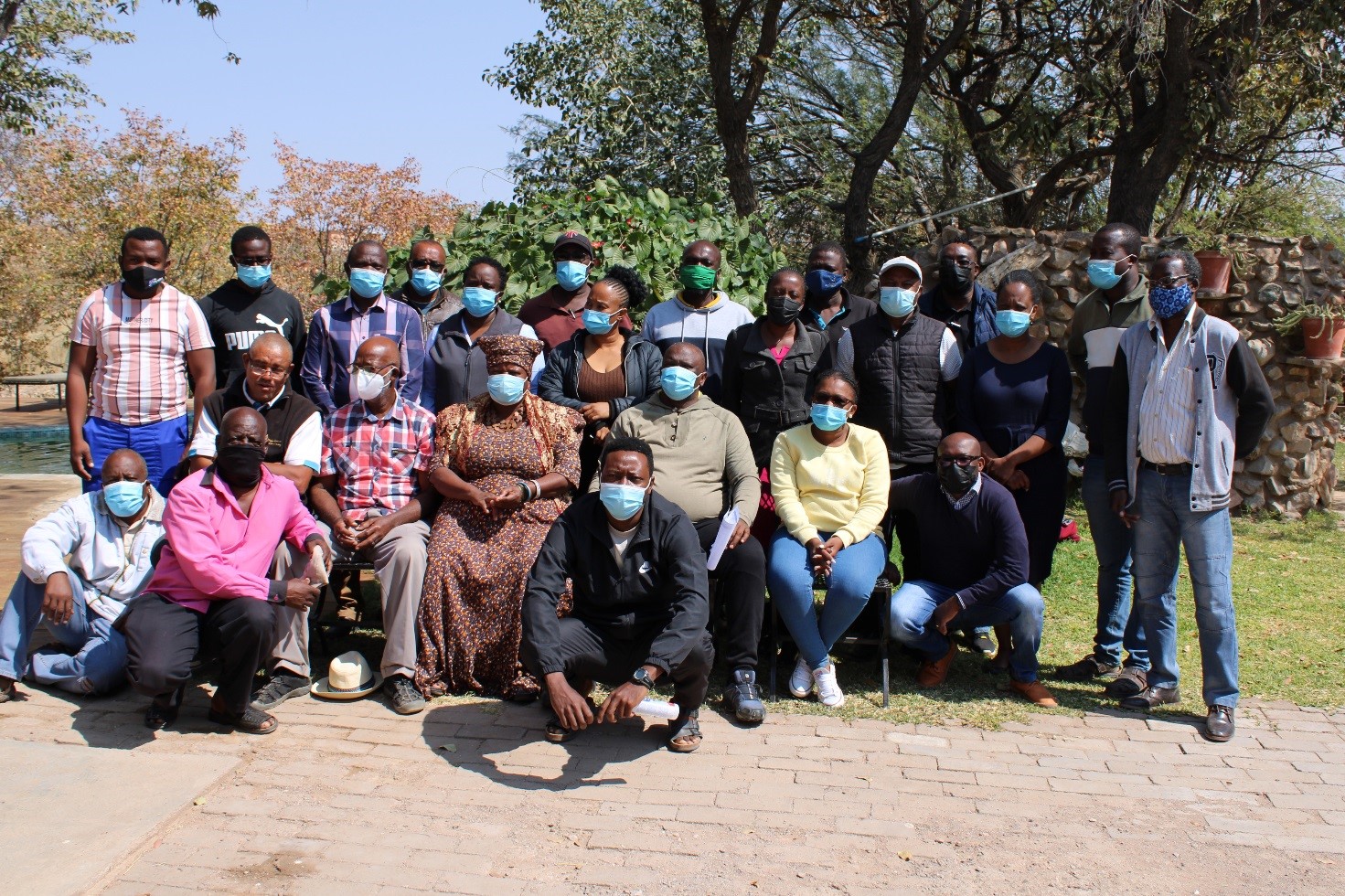
The Environmental Investment Fund of Namibia (EIF) in partnership with the Ministry of Agriculture, Water and Land Reform (MAWLR), is implementing the “Improving rangeland and ecosystem management practices of smallholder farmers under conditions of climate change in Sesfontein, Fransfontein, and Warmquelle areas of the Republic of Namibia” (IREMA Project). This is a Green Climate Fund (GCF) funded project (SAP001) that aims to reduce the vulnerability of smallholder farmers in the Kunene region to the impacts of climate change.
Regarded as one of the driest and vulnerable regions in the country, the Kunene region is negatively impacted by the effects of climate risks and shocks such as prolonged droughts, water scarcity, floods, and heatwaves. Understanding the interaction of hazards, exposure and vulnerability are crucial to effective disaster prevention. Therefore, risk assessment is fundamental to disaster risk reduction and recovery. As part of its response to devastating negative impacts of climate change experienced in the region, the IREMA Project is currently undertaking a disaster risk reduction assessment in the Kunene region to determine the nature and extent of such risk, by analysing the and evaluating conditions of vulnerability that could potentially harm exposed people, livelihoods, property and the environment on which they depend. This exercise will help in risk profiling and evaluation to identify cost-effective risk-reduction options in terms of the socio-economic concerns of the Kunene society and its capacity for risk reduction.
The project recently concluded the training of trainers (ToTs) workshop held in Khorixas and Opuwo, on 11th -13th August and 16th -18th August 2021, respectively. The aim of the training workshop was to enhance the ability of various sectoral institutions that are involved in community development work in the region to facilitate community training on Disaster Risk Reduction (DRR to improve farmers’ resilience to climate risks, shocks, and stresses at the local level. The workshop was attended by 56 participants from various institutions including the Kunene Regional Council, MAWLR, Conservancies and Farmers Associations, and Agribank of Namibia, just to mention a few.
In his opening remarks of the training workshop, Opuwo Constituency Councillor Hon. Ueutjerevi Ngunaihe welcomed the initiative, emphasising that the training came at the right time as the region continues to experience persistent droughts and climate risks that need urgent attention and the involvement of the community. This training will have a meaningful impact on the ground as the knowledge gained will be transferred to the local communities who are mostly the ones negatively affected by disasters, he added. The stakeholders were urged to fully engage and participate in the training so that they can go back to their respective duty stations with a broadened understanding of measures and strategies on how they can help the communities reduce risks and improve their resilience. According to Mr. Amon Kapi, the Chairperson of Ngatuwane Farmers Union in Kunene, this training was an eye-opener to them as they now understand the different key components and strategies they can implement to mitigate risks and hazards in their respective areas.
In her remarks, Mrs. Mirjam Kaholongo, Project Manager - IREMA Kunene Project, commended the participants for their active participation. She pointed out that “the benchmark for reducing disaster risks in our communities lies in the knowledge of the hazards and the socio-economic, physical and environmental vulnerabilities as well as the ways in which the hazards and vulnerabilities are changing overtime followed by action the communities are taking based on the basis of that knowledge”. Hence the need to be proactive rather than being reactive to disasters. She further stated that the outcome of this very important initiative would include action plans for two Constituencies (Khorixas and Sesfontein), a comprehensive training manual, and guidelines for integrating disaster risk reduction into farming practices to strengthen existing regional and local frameworks governing the management of risks and hazards in Kunene, she stated.
The project is also promoting cost-effective investments in Early Warning Systems (EWSs) that determine climate-driven vulnerabilities and cost-effective adaptation options for the local communities. In light of this, the project is currently busy developing an EWS tailored for the Kunene Region.

